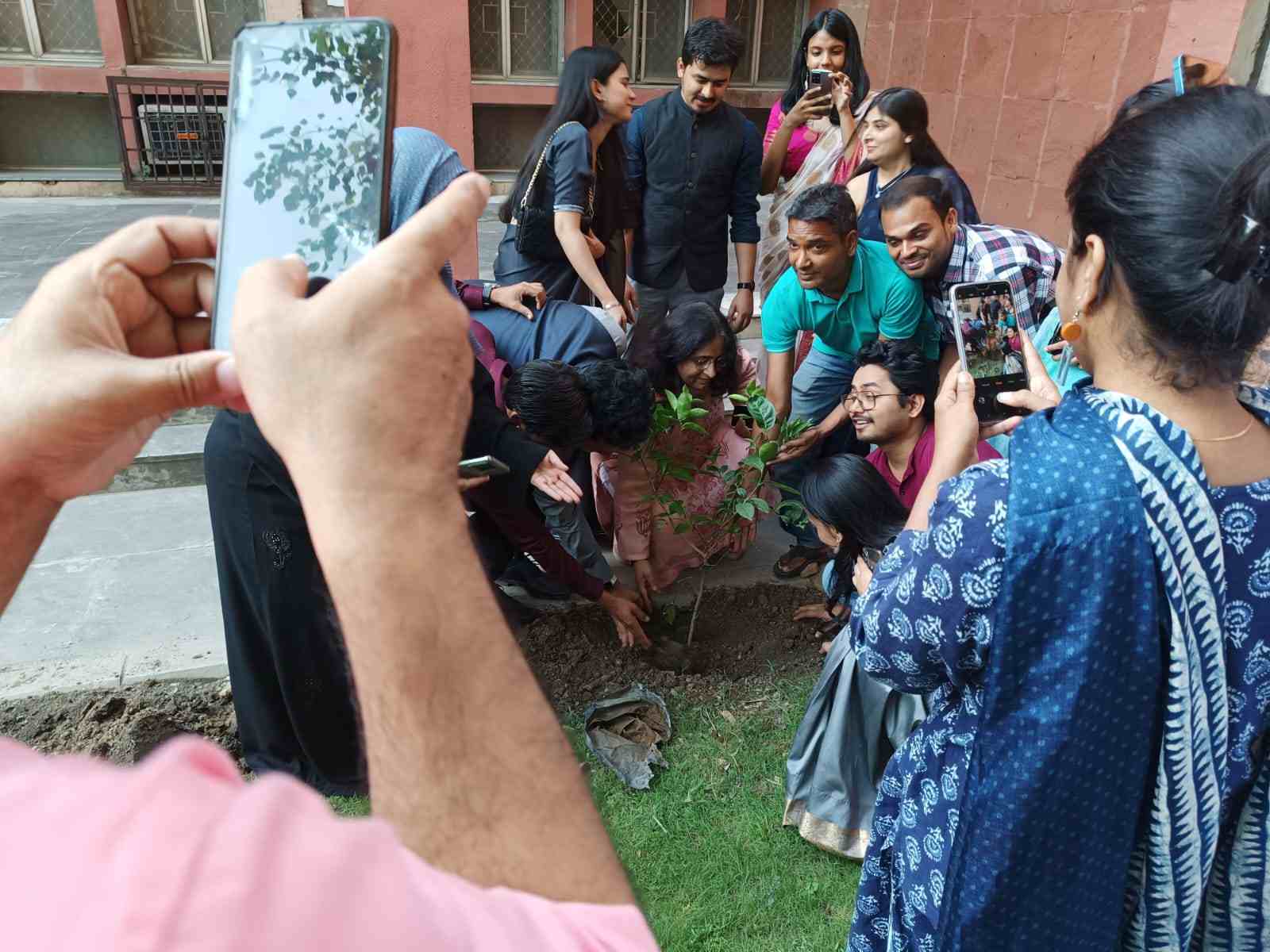
The Department of Economics, Jamia Millia Islamia (JMI), in collaboration with Indian Society for Ecological Economics (INSEE) organized a Panel Discussion on “Demand-side Solutions for Mitigating Climate Change” by authors of Intergovernmental Panel on Climate Change (IPCC) Assessment Report 6 on June 5, 2023, on MS Team platform as part of Celebration of World Environment Day.
The eminent panellists were Leila Niamir (Research Scholar with Transformative Institutional and Social Solutions Research Group and Sustainable Service Systems Research Group at International Institute for Applied Systems Analysis, Austria) and Keigo Akimoto (Group Leader, Systems Analysis Group and Chief Researcher, Research Institute of Innovative Technology for the Earth, and Specially Appointed Professor, Institute of Innovative Research, Tokyo Institute of Technology, Japan). The event was moderated by Joyashree Roy (Founder Director, Centre on South and South East Asia Multidisciplinary Applied Research Network on Transforming Societies of Global South, Asian Institute of Technology, Thailand, and member, INSEE).
The programme was co-chaired by Prof. Asheref Illiyan, Head, Dept. of Economics, JMI and Nilanjan Ghosh, Director, Centre for New Diplomacy and Observer Research Foundation, Kolkata, and President, INSEE. Prof. Nandan Nawn, Dept. of Economics, JMI and member, INSEE was the coordinator of the programme.
Dr.Ghosh in his introductory address emphasized that climate change is more of a developmental and less of an environmental problem. He advocated transdisciplinary approaches through demand side mitigation for addressing the problem.
Prof. Roy provided an introduction to the reports by IPCC, including the last one on 1.5⁰C. She mentioned that for the first time, demand side measures were included in the IPCC Assessment Reports that has multiple co-benefits. She emphasized on the inequality aspects of energy consumption—how high socio-economic status contributes to much higher emission than by those who are having low socio-economic status.
Dr. Niamir identified three sets of factors towards demand-side mitigation: socio-cultural, infrastructural design, and technological. For each, she provided detailed explanation along with examples on reduction of energy use. Examples were taken from possibilities of digitalization, sharing economy and circular economy, under each of the three factors.
Prof.Akimoto shared possible energy demand reductions across regions, worldwide, in case of adoption of steps such as ride-and-car sharing, virtual meeting and teleworking, e- publication, recycling and reduction in apparels, among others.
The panel discussion was followed by a thought provoking question answer session. Vote of thanks was offered by Prof. Nawn, Department of Economics, JMI.
In another event, the Centre for the Study of Social Exclusion and Inclusive Policy, JMI organised a Plantation Drive to celebrate the World Environment Day 2023 at the Lawn of the Noam Chomsky Complex, Gate No. 19, JMI. The drive was launched by the Hony. Director Prof. Arvinder Ansari, Faculty members, Staff and Students of the Centre in order to create a green, clean and healthy environment in and around campus which will go a long way in making the campus environment friendly. It will also help to sensitize students towards the need to preserve our environment and ecology. Most of the plants planted on the occasion were herbal plants which would have motivated the students to keep their surroundings green and clean and also understand the importance of the herbal plants.
All the students who joined the event expressed their interest in the event and suggested that such drives should be organized at regular intervals in order to create a healthy environment. With this all felt inner peace for something good for the environment.
Click Here for More Institutional Activities
